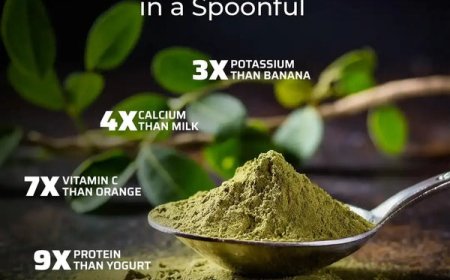What to Expect at a Detox Retreat in Rishikesh
Among the many wellness experiences available, detox retreats in Rishikesh stand out as life-changing programs designed to help individuals restore balance, eliminate toxins, and revitalize the body and mind.

Nestled in the foothills of the Himalayas and blessed by the tranquil flow of the sacred Ganges River, Rishikesh is more than a spiritual havenit's a powerful destination for physical, mental, and emotional cleansing. Known as the "Yoga Capital of the World," this sacred city attracts seekers from around the globe who come to reconnect with themselves, deepen their spiritual practice, and rejuvenate their health. Among the many wellness experiences available, detox retreats in Rishikesh stand out as life-changing programs designed to help individuals restore balance, eliminate toxins, and revitalize the body and mind.
If you're considering joining a detox retreat in Rishikesh, here's a comprehensive look at what you can expectfrom daily routines and healing therapies to emotional breakthroughs and spiritual renewal.
1. Understanding the Purpose of a Detox Retreat
Detoxification is not just about dieting or fasting; it's about eliminating accumulated toxins from the body, mind, and spirit. The modern lifestyle, full of processed food, stress, pollution, and digital overload, takes a toll on our health. A detox retreat provides a structured environment to reset the system using a combination of Ayurvedic principles, yoga, meditation, and nutrition.
In Rishikesh, detox retreats often incorporate ancient Indian practices such as Panchakarma, herbal therapies, and sattvic (pure) diets, along with contemporary wellness techniques like juice cleanses and colon hydrotherapy.
2. A Typical Daily Schedule
Life at a detox retreat in Rishikesh follows a disciplined yet nurturing schedule. While routines vary slightly depending on the retreat center, you can generally expect the following structure:
Early Morning (5:30 AM 7:00 AM): Your day usually starts with herbal tea or warm lemon water to awaken digestion. This is followed by a gentle yoga session that includes breathing exercises (pranayama), meditation, and light stretching to stimulate internal organs and release toxins.
Morning (7:30 AM 9:00 AM): After yoga, a light sattvic breakfast is servedoften consisting of fruits, herbal teas, porridge, or steamed vegetables. Nutritional guidance is a core part of the detox process.
Late Morning (9:00 AM 12:00 PM): This time is typically reserved for Ayurvedic consultations, detox therapies such as oil massages (Abhyanga), steam baths, or Panchakarma treatments like Virechana (therapeutic purgation).
Afternoon (12:30 PM 2:00 PM): A wholesome, plant-based lunch is served, followed by rest or silent reflection. Some retreats also include workshops on mindful eating or stress management.
Evening (4:00 PM 6:00 PM): A restorative yoga or meditation session takes place in the evening. This is often deeper and more meditative, allowing you to connect with your inner self.
Night (6:30 PM 8:00 PM): A light dinner is served, usually before sunset, followed by satsang (spiritual discourse), mantra chanting, or a fire ceremony (havan) to conclude the day with peace.
Lights are typically out by 9:00 PM to encourage deep rest and cellular healing.
3. Customized Detox Therapies
One of the biggest benefits of a detox retreat in Rishikesh is the personalized attention. Upon arrival, most centers conduct a health evaluation based on Ayurvedic diagnostics such as pulse reading and dosha analysis (Vata, Pitta, Kapha). Based on this, a tailored detox plan is created for each guest.
Common treatments include:
Abhyanga (Ayurvedic Massage): Uses warm herbal oils to stimulate lymphatic flow and eliminate toxins.
Shirodhara: A relaxing treatment where warm oil is poured over the forehead to calm the nervous system.
Basti (Colon Cleansing): An essential part of Panchakarma, it helps remove deep-rooted waste from the intestines.
Herbal Steam Therapy: Opens the pores and encourages sweat-based toxin release.
These treatments are conducted under expert supervision, ensuring safety and effectiveness.
4. Sattvic Food and Nutrition
Detox retreats emphasize sattvic foodsimple, fresh, vegetarian meals that are light on the digestive system but rich in nutrients. Ingredients are often organic and locally sourced, with meals prepared according to Ayurvedic principles.
Youll experience dishes like khichdi (a lentil-rice porridge), herbal teas, seasonal fruits, and plenty of warm water. The purpose is to cleanse the gut, stabilize blood sugar, and enhance mental clarity. Coffee, sugar, dairy, and spicy or fried foods are typically eliminated during the retreat.
Nutrition workshops may also be offered to educate guests about maintaining a detox-friendly diet even after they return home.
5. Emotional and Mental Release
Detoxing isnt only physicalit also stirs up emotional residue. As toxins leave your body, buried feelings often surface. This is completely normal and, in fact, welcomed as part of the healing process.
You might find yourself crying during meditation or feeling unexpectedly irritable. Trained facilitators and counselors are available at most retreats to guide you through these emotions with compassion. Practices such as journaling, breathwork, and guided inner child healing are sometimes included in the itinerary.
6. Spiritual Enrichment in a Sacred Setting
Being in Rishikesh adds a powerful spiritual dimension to your detox journey. The citys sacred energy, temples, and ashrams create an ideal environment for inner transformation. Whether you're sitting silently by the Ganges or attending a Ganga Aarti (ceremony) at sunset, the spiritual vibrations enhance the effects of physical detoxification.
Some retreats also offer spiritual mentorship, Vedic astrology readings, or mantra initiation for those seeking a deeper path.
7. What to Pack and Prepare
To make the most of your detox retreat:
Pack light and comfortable clothing, ideally made of breathable fabrics like cotton.
Bring a journal for self-reflection and emotional release.
Leave behind digital distractions, as most retreats encourage minimal use of phones and gadgets.
Prepare mentally for a slower pace and potential discomfort as your body adjusts.
Approach the retreat with an open heart and a willingness to let gonot just of physical impurities, but also mental clutter and emotional baggage.






































